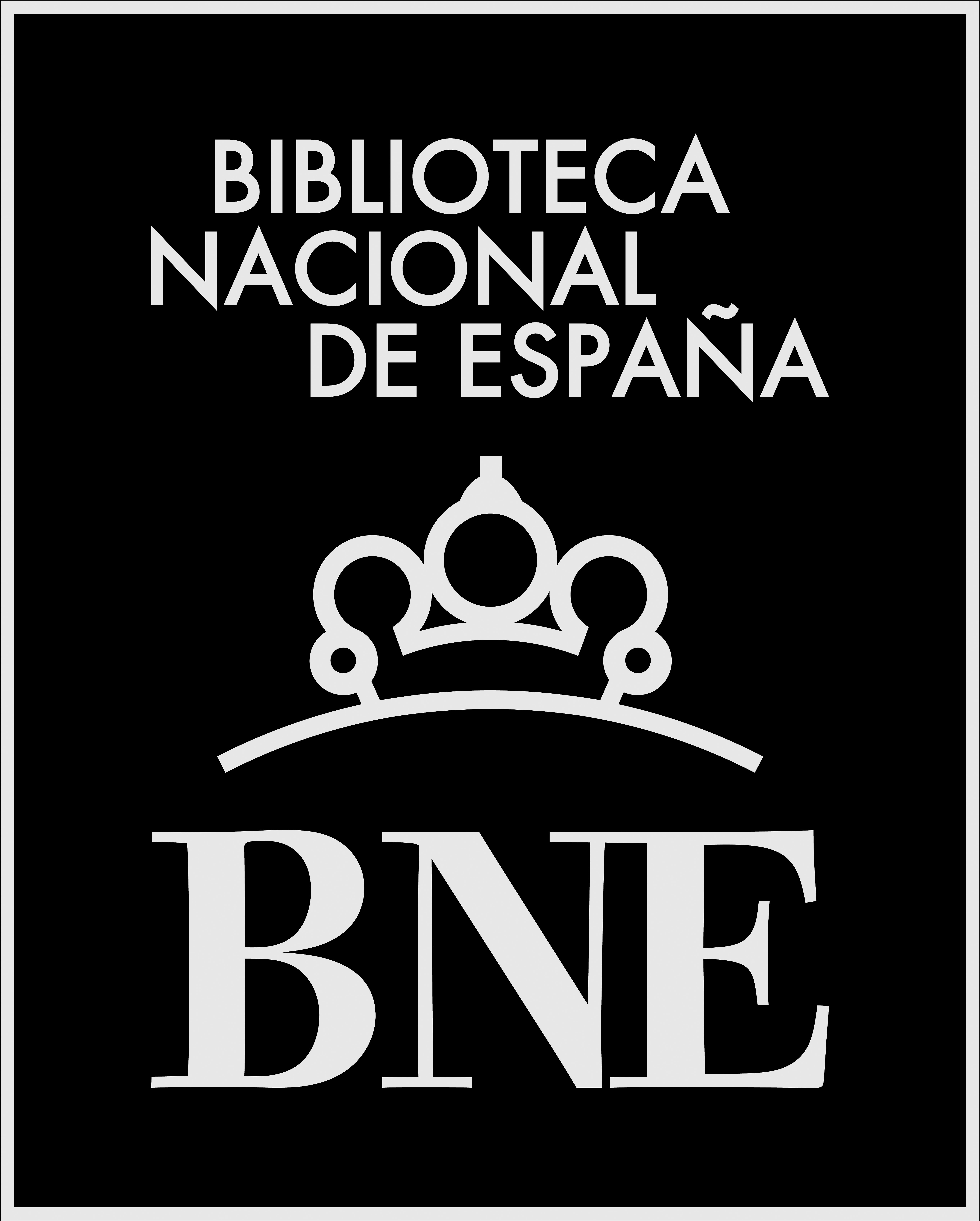The Development of Mathematical Thinking Through the Open Number-Based Method (ABN) in a Classroom of Three-Year-Olds
DOI:
https://doi.org/10.5281/zenodo.14788149Keywords:
NBL, Educational Innovation, mathematical thinking, Pre-School EducationAbstract
Mathematics is fundamental in the education system and everyday life, and its foundations are established in Early Childhood Education. Developing mathematical thinking at this stage involves acquiring skills to solve practical problems. The ABN method, an innovative pedagogical approach, focuses on teaching mathematical concepts through numbers rather than the traditional calculation-based approach. This method stands out for being playful, manipulative, and motivating, attributes highlighted by numerous authors. To demonstrate its benefits, 10 activities were designed and implemented in a classroom of 25 three-year-old students over seven weeks. The evaluation of the proposal and the activities confirmed its effectiveness, aligning with previous research, although areas for improvement were identified. Despite challenges, the experience was satisfactory, solidifying ABN as a valuable tool for teaching mathematics in Early Childhood Education.
Downloads
References
Crespo Lleó, P. (2021). Propuesta de implantación del método ABN en el aula de tres años de Educación Infantil. Trabajo de Fin de Grado. Facultad de Magisterio y Ciencias de la Educación. Universidad Católica de Valencia. https://riucv.ucv.es/handle/20.500.12466/2060
Decreto 100/2023, de 9 de mayo, por el que se establece la ordenación y el currículo para la etapa de Educación Infantil en la Comunidad Autónoma de Andalucía. Boletín Oficial de la Junta de Andalucía, España, 15 de mayo de 2023. BOJA núm. 90. https://www.juntadeandalucia.es/eboja/2023/90/BOJA23-090-00019-8467-01_00283496.pdf
Espinosa Moreno, C., y Gregorio Olivares, M. (2018). El método ABN en Educación Infantil. Publicaciones didácticas, 92, (72-78). https://publicacionesdidacticas.com/hemeroteca/articulo/092026
García Carrillo, M. (2019). Matemáticas manipulativas y ABN en tres años. Recursos para el aula. Conserjería de Educación, Juventud y Deportes. Región de Murcia. Secretaría General. Servicio de Publicaciones y Estadísticas. https://hdl.handle.net/11162/216822
Jiménez Marcos, V. (2016). El método ABN en Educación Infantil. [Trabajo de Fin de Grado]. Facultad de Educación y Trabajo Social. Universidad de Valladolid. http://uvadoc.uva.es/handle/10324/19689
Juanez Minguela, E. (2020). La enseñanza del número en Educación Infantil mediante el método ABN. [Trabajo de Fin de Grado], Universidad de Valladolid. http://uvadoc.uva.es/handle/10324/42830
Orden del 5 de agosto, por la que se desarrolla el Currículo correspondiente a la Educación Infantil en Andalucía. Boletín Oficial de la Junta de Andalucía, España, 26 de agosto de 2008. BOJA núm. 169. https://www.juntadeandalucia.es/boja/boletines/2008/169/index.html
Real Decreto 95/2022, de 1 de febrero, por el que se establece la ordenación y las enseñanzas mínimas de la Educación Infantil. BOE núm. 28, de 2 de febrero de 2022. Ministerio de Educación y Formación Profesional. https://www.boe.es/eli/es/rd/2022/02/01/95
Sánchez Jover, S. (2019). Método ABN en Educación Infantil. [Trabajo de Fin de Grado]. Facultad de Humanidades y Ciencias de la Educación. Universidad de Almería. https://repositorio.ual.es/bitstream/handle/10835/7921/TGF_SANCHEZ%20JOVER,%20SORAYA-2.pdf?sequence=1
Toledo Lara, G. (2021). Pedagogías emergentes: una aproximación exploratoria. Aposta. Revista de Ciencias Sociales, (91), 98-113. http://apostadigital.com/revistav3/hemeroteca/toledolara.pdf
Toledo Lara, G. (2022). El aprendizaje en la sociedad de la información: alternativas de exploración teórica. Conrado, 18(89), 208-215. http://scielo.sld.cu/scielo.php?script=sci_arttext&pid=S1990-86442022000600208&lng=es&tlng=es.
Valdés Velázquez, A. (2014). Etapas del desarrollo cognitivo de Piaget. Universidad Marista de Guadalajara (México). https://www.researchgate.net/publication/327219515_Etapas_del_desarrollo_cognitivo_de_Piaget
Valero Rodrigo, N. y González Fernández, J.L. (2020). Análisis comparativo entre la enseñanza tradicional matemática y el método ABN en Educación Infantil. Edma 0-6: Educación Matemática en la Infancia, 9(1), 40-61. https://doi.org/10.24197/edmain.1.2020.40-61
Zotes Colinas, E., y Arnal-Palacián, M. (2022). Matemáticas en Educación Infantil: una mirada al aprendizaje de las magnitudes desde el desarrollo sostenible. Educación matemática, 34(1), 306-334. https://doi.org/10.24844/em3401.11
Downloads
Published
Issue
Section
License
Copyright (c) 2025 Rafael Muñoz Ruiz (Autor/a)

This work is licensed under a Creative Commons Attribution-NonCommercial-NoDerivatives 4.0 International License.
This journal provides immediate open access to all its content, following the principle that making research freely available to the public fosters a wider global exchange of knowledge. In line with this commitment, the articles published in the Revista de Estudios Pedagógicos Contemporáneos are licensed under a Creative Commons CC BY 4.0 — Attribution International License, which allows sharing and adaptation of the content, provided appropriate credit is given to the authors and the journal.
How to Cite
Similar Articles
- Juan Antonio Palazón Conca, Promoting gender equality in the classroom through ict: a case study in elementary education , The Journal of Contemporary Pedagogical Studies : Vol. 1 No. 1 (2025)
- Elena Sánchez Clemente, The Families Forest: An Innovation Proposal for Early Childhood Education , The Journal of Contemporary Pedagogical Studies : Vol. 1 No. 1 (2025)
- Sheila Tárano Ruiloba, Discovery through sensory experimentation: an innovation proposal for the 2nd cycle of Early Childhood Education , The Journal of Contemporary Pedagogical Studies : Vol. 1 No. 1 (2025)
- Idana Beroska Rincón Soto, Neuroeducation, social sciences and student dropout in the digital age , The Journal of Contemporary Pedagogical Studies : Vol. 1 No. 1 (2025)
- Gonzalo Adrián Espejo Marín, Functional diversity in students and the use of ICTs: an innovation proposal , The Journal of Contemporary Pedagogical Studies : Vol. 1 No. 1 (2025)
- Camino Sánchez Ortiz, Addressing diversity through educational technology: an intervention in multigrade classrooms in early childhood and primary education , The Journal of Contemporary Pedagogical Studies : Vol. 1 No. 1 (2025)
- Miguel Salgado García, Service-Learning and oral health education: a methodological proposal in vocational healthcare training , The Journal of Contemporary Pedagogical Studies : Vol. 1 No. 1 (2025)
- Benjamín Barón-Velandia, Daniel Nofrid Rocha Jiménez , Mauro Grossi Pasche , Cristián Cofré León, Samir Esteban Pérez Suárez, Gamification in a COIL project for industrial engineers , The Journal of Contemporary Pedagogical Studies : Vol. 1 No. 1 (2025)
- Javier Bermejo Rodríguez, Gustavo Eduardo Toledo Lara, Toward a philosophical understanding of the curriculum: emerging logics , The Journal of Contemporary Pedagogical Studies : Vol. 1 No. 1 (2025)
- Pablo Alejandro Veintimilla Ramirez , Educational reforms and public policies in upper secondary education: a comparative analysis of the cases of Spain and Ecuador , The Journal of Contemporary Pedagogical Studies : Vol. 1 No. 1 (2025)
You may also start an advanced similarity search for this article.
















